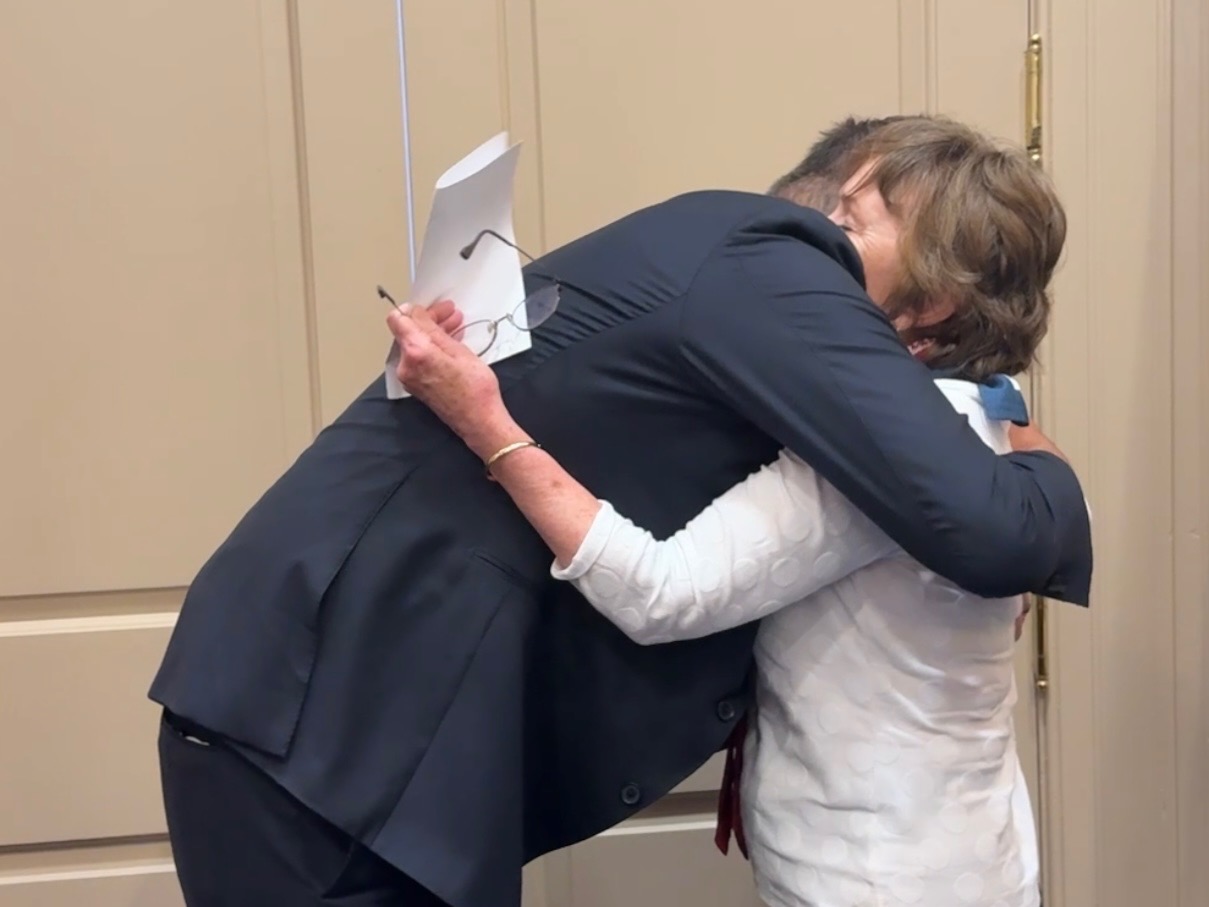GOVERNOR MEYER SIGNS END-OF-LIFE OPTIONS AC
May 20, 2025
GOVERNOR MEYER SIGNS END-OF-LIFE OPTIONS ACT
New law makes Delaware the 11th U.S. jurisdiction to legalize medical aid in dying, following nearly a decade of advocacy and debate
DOVER – Today, Governor Matt Meyer signed House Bill 140, allowing terminally ill adult residents of Delaware to request and self-administer medication to end their lives in a humane and dignified manner.
“Today, Delaware joins a growing number of states in recognizing that end-of-life decisions belong to patients—not politicians,” said Governor Matt Meyer. “This law is about compassion, dignity, and respect. It gives people facing unimaginable suffering the ability to choose peace and comfort, surrounded by those they love. After years of debate, I am proud to sign HB 140 into law.”
The landmark legislation provides mentally capable, terminally ill Delawareans—those with a prognosis of six months or less—a legal option to request and self-administer medication to peacefully end their suffering. The bill includes extensive safeguards, requiring the patient’s attending physician or advanced practice registered nurse (APRN), as well as a consulting physician or APRN, to confirm the diagnosis and the patient’s decision-making capacity. The patient must also make multiple requests, including one in writing.
“This moment has been a decade in the making, and we would not be here today without the relentless dedication of former Representative Baumbach and the advocates who stood with him year after year,” said Rep. Eric Morrison, sponsor of HB 140. “Several outspoken individuals fought for this legislation because they were living with terminal conditions and wanted the choice to end their suffering on their own terms. Unfortunately, they passed before seeing this bill become law. I’m grateful to Governor Meyer for signing HB 140 in a timely manner and recognizing that Delawareans deserve this option.”
“House Bill 140 is about honoring the autonomy and humanity of those facing unimaginable suffering from terminal illness,” said Sen. Bryan Townsend. “This legislation exists because of the courage of patients, family members, and advocates who shared deeply personal stories of love, loss, and pain. I want to express my gratitude to those who bravely came forward, and to Governor Meyer for signing this critical legislation that respects the bodily autonomy of our fellow Delawareans.”
HB 140 passed after nearly a decade of debate, advocacy, and testimony from families and medical professionals across the state. It reflects growing public support for end-of-life autonomy; a 2020 survey showed that 72% of Delaware voters support medical aid-in-dying legislation.
“With Governor Meyer’s signature today, Delaware affirms a profound commitment to patient autonomy,” said Kevin Díaz, Interim President and CEO of Compassion & Choices. “By authorizing medical aid in dying for terminally ill individuals, the First State opens the door to more compassionate, patient-directed care—and to a future where dignity at the end of life is not just a hope, but a legal right.”
The legislation is named in honor of Ron Silverio and Heather Block, two Delawareans who fought courageously for medical aid in dying before passing from terminal illnesses. Their legacy now lives on in a law that will bring comfort and choice to others facing similar journeys.
Delaware joins ten other states and the District of Columbia in authorizing medical aid in dying. These include:
•Oregon (the first state to enact such a law, in 1997)
•Washington
•California
•Colorado
•Hawaii
•Maine
•New Jersey
•New Mexico
•Vermont
•Montana (where it is legal via state Supreme Court ruling)
•District of Columbia
These jurisdictions have seen positive outcomes: the laws are used cautiously, participation rates remain low, and there is no evidence of abuse. Delaware’s legislation reflects the best practices established by these states, ensuring compassion and protection for patients at life’s end.


